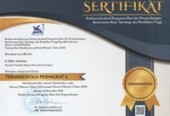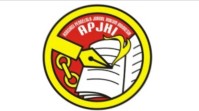Exercising No Harm Rule: Claims for Damage and Loss Due Climate Change Effects
DOI:
https://doi.org/10.28946/slrev.Vol6.Iss1.1646.pp174-188Keywords:
Climate change, Development model, No-harm rule, State’s responsibility.Abstract
The act of utilising all the resources owned by a state, including natural resources, is the right of every state. However, its use is prohibited if it causes harm to other states. This is then referred to as the principle of no harm rule in international law. Therefore, each state is responsible not for causing damage to other States' environments or areas outside the limits of its jurisdiction. This article will analyse the development of the no harm rules and its application model for claiming state responsibility. As normative research, it used secondary data as the main data, and the primary, secondary and tertiary legal materials were analysed qualitatively. In discussion, this principle has long existed as customary international law to mitigate transboundary pollution. In the case of the environment in general, many studies have applied this principle. However, due to the uniqueness of the climate change issue, evidence and proof of the impacts caused cannot be used as the basis for a lawsuit like ordinary environmental cases. Based on the discussion and simulation conducted, it is concluded that the no harm rules principle can be applied to climate change issues. However, this principle is not satisfactory and has limitations in its application.Downloads
References
Adolf, Huala. Aspek-Aspek Negara Dalam Hukum Internasional. (Jakarta: Rajawali Pers, 1991).
Arbitration, Gut Dam. 8 ILM 118 (1969).
Boyle, Patricia Birnie and Alan. “International Law and The Environment (2nd Ed).†(London: Oxford Press, 2002).
Brownlie, Ian. Principles of Public International Law (2nded). (London: Oxford University Press, 1973).
Case, Chorzow Factory. PCIJ, Series A No. 17 (1928).
Case, Island of Palmas. (Netherlands/U.S.A.), 2 R.I.A.A. 829 (Permanent Court of Arbitration 1928) (n.d.).
Commission, International Law. Draft Articles on Responsibility of States for Internationally Wrongful Acts (2021).
Corfu Channel case (United Kingdom v. Albania), Judgment of 9 April, 1949, I.C.J. Reports 1949 (n.d.).
Kusumaatmadja, Mochtar and Etty R. Agoes. Pengantar Hukum Internasional. II. (Bandung: PT. Alumni, 2012).
ICJ advisory on nuclear weapons. Advisory opinion on the Legality of Nuclear Weapons, July ICJ Judgement § (1996). https://www.icj-cij.org/files/case-related/95/095-19960708-ADV-01-00-EN.pdf.
Crawford, James. The ILC’s Articles on StateResponsibility: Introduction, Text and Commentaries (2002). Report of the ILC, UN Doc. A/56/10 (2001), J. Crawford, 1st Report on State Responsibility, UN Doc. A/CN.4/490 dan Add.1–7 (1998); 2nd Report, UN Doc. A/CN.4/498.
Lake Lanoux Arbitration, Affair du Lac Lanoux (Spain vs France). 12 R.I.A.A. 281, Nov. 16, 1957.
McCorquodale, Martin Dixon and Robert. Cases and Materials on International Law. Oxford University Press, 2003.
Permanent Court of Arbitration. Morocco, Phosphates in Judgment. 1938. PCIJ, Series A/B No. 74.
Sands, Philippe. “Principles of International Environmental Law. ( 2nd Ed) (Cambridge: Cambridge University Press, 2003).
Shaw, Malcolm N. International Law (6th Ed). Cambridge University Press, 2008.
International Court of Justice, GabÄÃkovo-Nagymaros Project Case: Hungary v. Slovakia. Judgment, I.C.J. Reports 1997.
The Arbitration Convention between the United States of America and the Dominion of Canada, signed 15 April (1935).
The United Nations, Reports of International Arbitral Awards: Trail Smelter Arbitration (United States v. Canada) 16 April 1938, 11 March 1941; 3 R.I.A.A. 1907 (1941).
Trail Smelter Arbitration (United States v. Canada) 16 April 1938, 11 March 1941; 3 R.I.A.A. 1907 (1941) (n.d.).
United States v. Canada, Trail Smelter Arbitration. 11 March 1941; 3 RIAA 1907 (1941) Part 4, Section 3.
Voigt, Christina. “State Responsibility for Climate Change Damages.†Nordic Journal of International Law 77, no. 1 (2008): 8.
Zuhir, Mada Apriandi. “Rethinking Legality of State Responsibility on Climate Change in International Law Perspectives.†Jurnal Dinamika Hukum 17, no. 2 (2017): 203–14. https://doi.org/10.20884/1.jdh.2017.17.2.801.















